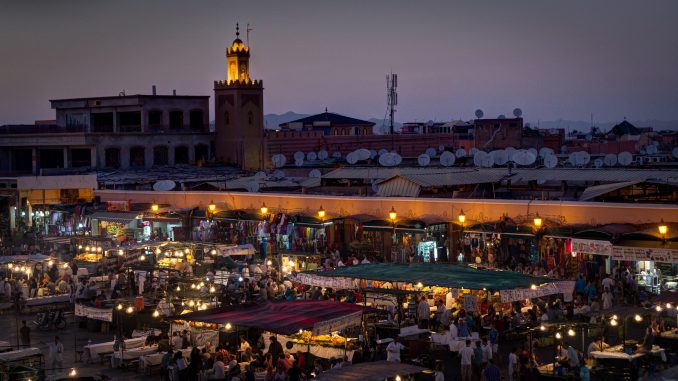
The Executive and the various stakeholders of the tourism sector decided, towards the end of March, to raise the bar. The ambition is to raise Morocco among the most popular destinations worldwide. By 2026, the Kingdom expects to attract some 17.5 million tourists, knowing that it intends to mobilize some 6.1 billion dirhams as budget allocations over this period. This is an objective, all in all, realistic, provided that we put the necessary efforts, according to the Minister of Tourism Fatim-Zahra Ammor, so as to involve the various segments, especially the hotel sector on which the minister dwelt.
According to the information provided by Minister Ammor, during his passage, Wednesday, May 3, in the program “Press Confidences” on 2M, the Department of Tourism is about to finalize a decree that will regulate collective accommodation. The main novelty is the introduction of a new tax on home stays.
Morocco wants to move to a new stage in the reform of this vital sector in order to end the unfair competition that may impact the performance of tourism in the coming period, especially since the collective accommodation realizes significant revenue. According to Ammor,
out of a total of 30 million overnight stays, Moroccans spend only 8 million nights in classified hotels, while 22 million nights are spent in alternative or homestay accommodation.
“It seems normal to me to pay taxes when you generate income. This will represent additional revenue for local communities. I think it will be a virtuous circle when everything is regulated, “said the minister who explained that this new measure ultimately benefits the security of the renter and the tenant.
Moreover, the Kingdom will not be the first country to regulate tourism at home. Fatim-Zahra Ammor cites the experience of Croatia to defend this new measure that may not be to the liking of many stakeholders who rent their apartments or rooms to tourists in different cities in the Kingdom. “Tourism in Croatia, she said, has made a quantum leap when its government decided to regulate the accommodation in private homes, “arguing that this new measure will not increase the price of collective accommodation, since the market is governed by the law of supply and demand.
Moreover, the draft decree of the Ministry of Tourism converges with the guidelines underway at the level of municipalities that are preparing to operate a revision of local taxation with the introduction of a tax on “stays in the home”, an activity that escapes any administrative and fiscal control.
She cited the example of the municipality of Martil, which, on the instructions of the governor of the prefecture Mdiq-Findeq, will be required to include the new tax on the agenda of the next ordinary session of its Council, under the month of May.
The decree n°2.22.867 concerning the approval of the General Construction Regulations for accommodation establishments, published in the Official Bulletin last March, brings new features to the legal framework relating to tourist accommodation, which should improve the tourist attractiveness of the Kingdom.
This general regulation determines the dimensional and functional construction standards specific to tourist accommodation establishments. The main novelty brought by this decree is that any project of creation, renovation or transformation of a building into a tourist accommodation establishment, the date of authorization of which is later than the date of publication of this decree, must respect at 100% the functional and standard building norms, and at 70% at least the complementary, functional and standard building norms in the score column.

Be the first to comment